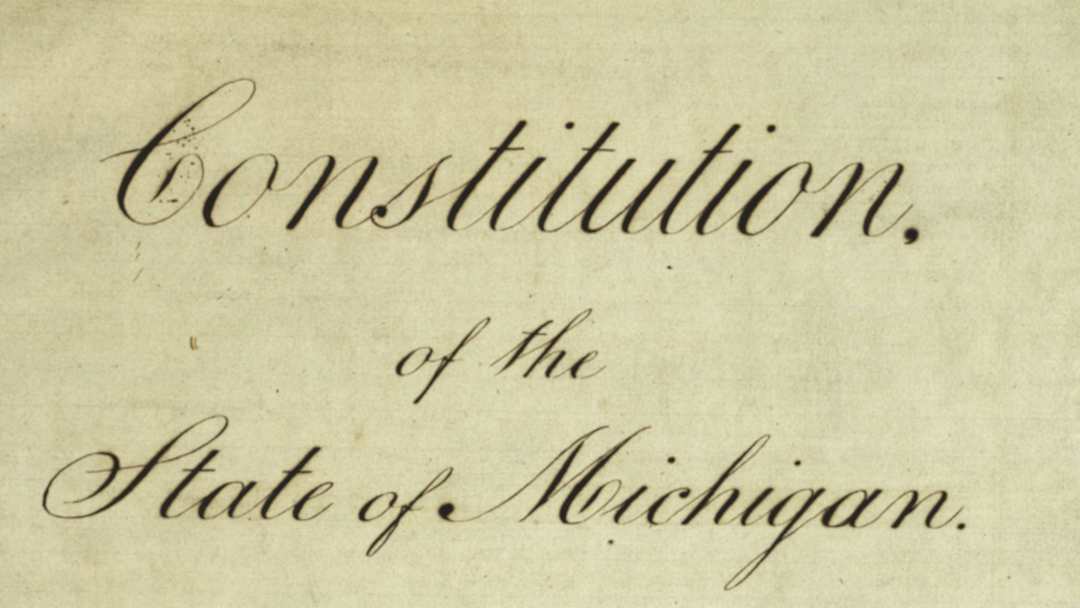Undocumented immigrants could obtain a Michigan driver license or state identification card under Democratic legislation that sponsors hope to make law this year.
Supporters say that giving more illegal immigrants legal permission to drive to work, medical appointments or other functions without the threat of arrest or deportation is a matter of “human dignity” that would benefit the economy, including farmers who rely on seasonal labor.
“It is not the state government’s purview or job to fix our broken immigration system,” House Majority Floor Leader Abraham Aiyash, D-Hamtramck, said.
“We’re not going to wait for the federal government to act to make sure that all Michiganders are going to be safe.”
“My colleagues and I will do everything we can to make sure that we have the votes that are necessary to get these bills passed and signed into law,” Senate Civil Rights Committee Chair Stephanie Chang, D-Detroit, told reporters.
“There’s not an apple, blueberry, asparagus, turkey, egg (farm) that this legislation wouldn’t help,” said Rob Steffens. “Our people want to follow the law, but they can’t.”
More from BridgeMI
- In Michigan, an affordable housing ‘emergency’ looms
- Michigan Democrats in no rush to prioritize ‘fixing the damn roads’
- Michigan passes $21.5B school budget with boost for at-risk students
- Cooling off period proposed for Michigan lawmakers to become lobbyists
- Lawsuit aims to disqualify Trump from Michigan ballot
FAQs
Q: What do Michigan House bills 4410-4412 do?
A: Michigan House bills 4410-4412 would make noncommercial Michigan driver’s licenses and state identification cards available to applicants who do not have proof of U.S. citizenship or immigration status.
Q: Why are these bills being introduced?
A: The bills are being introduced to address the needs of undocumented immigrants and other noncitizens who need a driver’s license or state identification card for driving, employment, and other purposes.
Q: Who would be eligible for a noncommercial Michigan driver’s license or state identification card under these bills?
A: To be eligible for a noncommercial Michigan driver’s license or state identification card under these bills, an applicant must:
- Be at least 16 years old
- Be a resident of Michigan
- Meet all other requirements for a driver’s license or state identification card, except for the requirement of proof of U.S. citizenship or immigration status
Q: How would noncommercial Michigan driver’s licenses and state identification cards be different from regular Michigan driver’s licenses and state identification cards?
A: Noncommercial Michigan driver’s licenses and state identification cards would have the same appearance and function as regular Michigan driver’s licenses and state identification cards, except that they would be marked “NONCOMMERCIAL” and would not be valid for travel outside of the United States.
Q: When would these bills take effect if they are passed?
A: If these bills are passed and signed into law, they would take effect on October 1, 2024.
Additional information:
The bills were introduced by Representative Stephanie Chang on September 28, 2023.
The bills have been referred to the House Committee on Transportation and Infrastructure.
Please note that this is just a summary of the legislation and does not constitute legal advice. If you have any questions about the legislation, you should consult with an attorney.
More Posts

SCOTUS – Justices uphold laws targeting homelessness
Does not amount to “cruel and unusual punishment” under the Eighth Amendment The Supreme Court has affirmed the validity of ordinances in a southwest Oregon city that restrict individuals experiencing homelessness from utilizing blankets, pillows, or cardboard boxes...

Michigan Crime Victim Compensation
Michigan has a crime victim compensation fund. You can contact them using the various links on this page. This post is just to provide you with information. We do not provide any services for this topic.Crime Victims Victims of crime often face lasting repercussions...

The Takings Clauses of the United States and Michigan
These clauses protect property rights and maintain a balance between public needs and individual ownership The Takings Clauses of the United States and Michigan Constitutions are pivotal components of property law, ensuring that private property is not seized by the...

Michigan Supreme Court – People of Michigan v. Duff
A seizure may occur when a police vehicle partially blocks a defendant’s egress if thetotality of the circumstances indicate that a reasonable person would not have felt free to leave In the case of People v Duff (July 26, 2024)., the Michigan Supreme Court issued an...


Michigan Supreme Court – Money back for former homeowners
In a landmark decision, the Michigan Supreme Court has ruled that counties cannot retain surplus proceeds from tax-foreclosed property sales, a move poised to return millions to former homeowners. This ruling, stemming from the case Rafaeli, LLC v. Oakland County,...


Komorn Law Case Victories
Just some of our victoriesState / Federal Legal Defense With extensive experience in criminal legal defense since 1993 from pre-arrest, District, Circuit, Appeals, Supreme and the Federal court systems. KOMORN LAW (248) 357-2550More...6-30-18 United States v Neece -...



Michigan Court of Appeals – Case Summary People v Bosworth
Michigan Court of Appeals - People v. Bosworth Despite these efforts, the jury found the evidence against Bosworth compelling. In the case of People v. Christopher Mychael Bosworth, the Michigan Court of Appeals rendered a decision on July 18, 2024. Bosworth was...



Michigan Court of Appeals – Case Analysis People v. Jackson
Michigan Court of Appeals - People v MICHAEL JACKSON Several critical legal issues emerged during the trial and subsequent appeals process including self defense claim and witness credibility. In a recent decision by the Michigan Court of Appeals dated July 18, 2024,...



Michigan Supreme Court restores wage and sick leave laws
Citizen-initiated proposals aimed at increasing the minimum wage and expanding paid sick leave In a significant ruling, the Michigan Supreme Court has reinstated the original minimum wage and paid sick leave laws that were initially gutted by the legislature in 2018....


SCOTUS Decision Gives Starbucks a Win in Labor Dispute
The decision underscored the principle that only activities that are essential and directly related to an employee's primary job responsibilities are subject to compensation. In a recent decision by the Supreme Court of the United States (SCOTUS), Starbucks received a...








